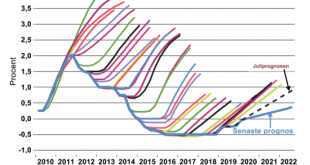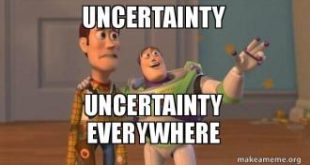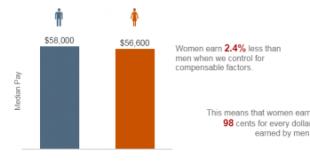Politicians often tell us that we should live within our means. Quite right. Unfortunately, many of them do not appear to understand what this actually entails when it comes to fiscal policy. So far as most economists are concerned, the events of the last decade have thoroughly discredited advocates of austerity. Yet, it remains quite common to hear politicians from across the political spectrum calling for reductions in fiscal deficits or even fiscal surpluses. There appears to be little...
Read More »Rationella förväntningar …
Econometrics — fictions masquerading as science
Econometrics — fictions masquerading as science In econometrics one often gets the feeling that many of its practitioners think of it as a kind of automatic inferential machine: input data and out comes casual knowledge. This is like pulling a rabbit from a hat. Great — but first you have to put the rabbit in the hat. And this is where assumptions come into the picture. As social scientists — and economists — we have to confront the all-important question...
Read More »On the road to hell
On the road to hell [embedded content]
Read More »Unquantifiable risk and financial stability
Unquantifiable risk and financial stability Meteorologists and insurers talk about the “1-in-100 year storm”. Should regulators do the same for financial crises? In this post, we argue that false confidence in people’s ability to calculate probabilities of rare events might end up worsening the crises regulators are trying to prevent … Unwarranted faith in the odds of rare events can set the stage for far worse outcomes. No matter how hard we try, we cannot...
Read More »Do current times vindicate Keynes and is New Keynesian macroeconomics Keynesian?
Thomas I. Palley, Esteban Pérez Caldentey, and Matias Vernengo, Review of Keynesian Economics, January 2020. Professor Robert Rowthorn delivered the second annual Godley-Tobin lecture in New York City on March 1, 2019. The title of his lecture was “Keynesian economics: back from the dead?” and it is published in this issue of the Review of […]
Read More »Overcontrolling in econometrics — a wasteful practice ridden with errors
Overcontrolling in econometrics — a wasteful practice ridden with errors The gender pay gap is a fact that, sad to say, to a non-negligible extent is the result of discrimination. And even though many women are not deliberately discriminated against, but rather self-select into lower-wage jobs, this in no way magically explains away the discrimination gap. As decades of socialization research has shown, women may be ‘structural’ victims of impersonal social...
Read More »Hicks on the limited applicability of probability calculus
Hicks on the limited applicability of probability calculus When we cannot accept that the observations, along the time-series available to us, are independent, or cannot by some device be divided into groups that can be treated as independent, we get into much deeper water. For we have then, in strict logic, no more than one observation, all of the separate items having to be taken together. For the analysis of that the probability calculus is useless; it...
Read More »Chicago economics — where do we unload the garbage?
Chicago economics — where do we unload the garbage? There is also a practical problem, if economics as a discipline is to survive. There is a huge amount of junk in the peer-reviewed economics literature -– the reviewing process is no protection when the reviewers themselves are prejudiced. A comparison that comes to mind is the collapse of “scientific” eugenics. There were vast amounts of that written, and now it is only read as an object example of the...
Read More »Three Economic Ideas Threatening to Defenders of the Status Quo
Neoclassical economics, which remains the prevailing orthodoxy, emerged in the late nineteenth century in the context of rising working-class opposition to capitalism. The theory’s appeal in certain circles as an apologetic for the status quo probably assisted its rise to prominence, which is not to imply that this was necessarily a motivation of the neoclassical economists themselves. The rise of any theory requires a receptive audience. Classical political economy had not provided...
Read More » Heterodox
Heterodox






